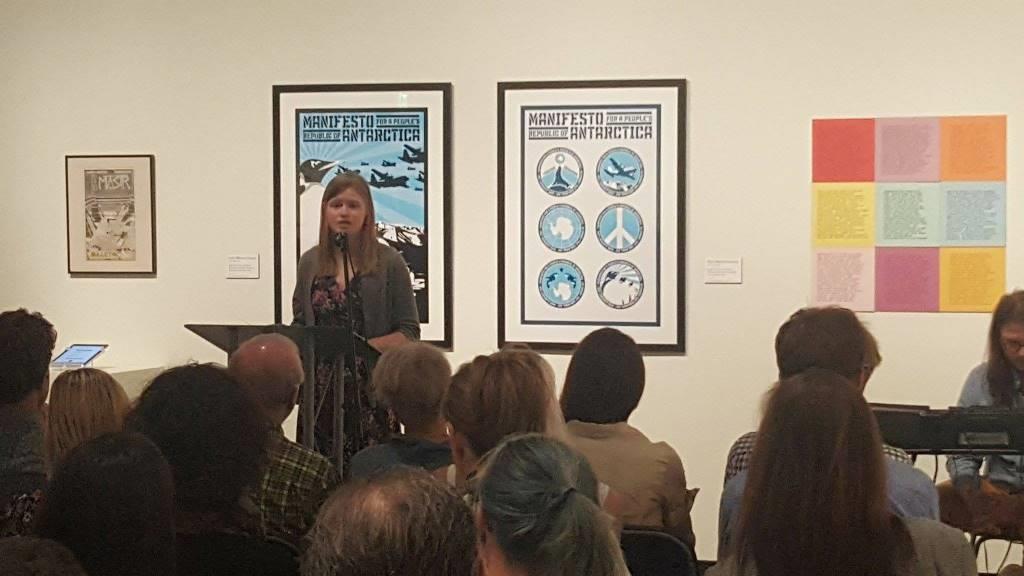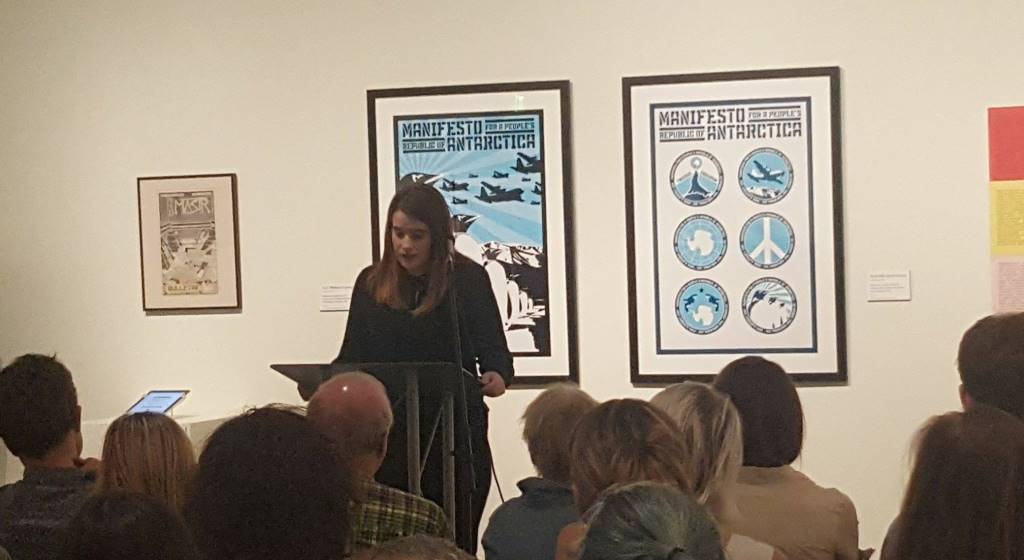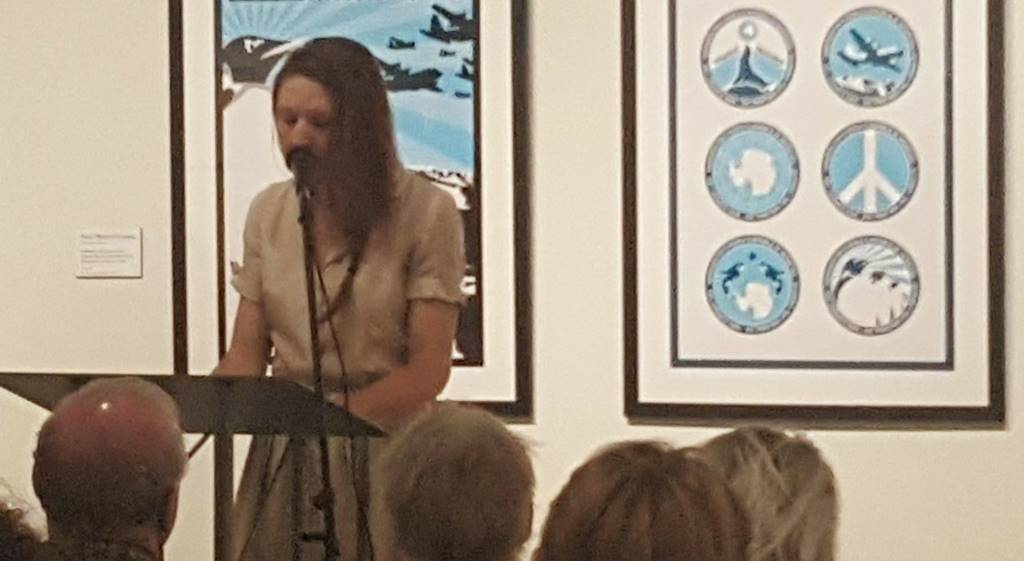
The Creative Writing Reading Series ended with this semester’s second, and final, thesis reading in the Gregory Allicar Museum of Art. The space was filled with family, peers and faculty members eager to hear the accomplishments of these three students: Joyce Bohling (MA in Creative Nonfiction), KT Heins (MFA in Fiction), and Cedar Brant (MFA in Poetry).
Camille Dungy opened the evening with an introduction, both excited and sad to begin the last event in the Creative Writing Reading Series of the school year.
As my fellow English department intern, I was excited to hear Joyce Bohling read an excerpt from her nonfiction graduate thesis. Associate Professor E. J. Levy introduced Bohling, describing her as a writer marked for a literary life. Bohling’s small, soft spoken demeanor is largely contrasted with her fierce words on the page.

Bohling’s thesis builds on her personal journey with anorexia, moving through the science and cultural history of eating disorders and the modern fad of dieting. As she began her piece, a stark silence settled over the group. Her cultural criticism targeted professionals in the field who combine dieting with extreme exercise as the perfect (“healthy”) duo for weight-loss maintenance.
As Bohling presented fact after fact, her powerful voice permeated the room. The weight of her evidence piled against the alleged success of dieting, moving from a satirical to an outright dismissive tone as we learned more about her personal experiences with dieting. We were left with an important explanation surrounding the reality of Health at Every Size, a lasting message that will still resonate long after the reading.
Levy took the time to also introduce MFA fiction student KT Heins, who shared the first chapter of her novel. As Levy explained, Heins’ violent and eerie prose was something that was both haunting and haunted. The story revolved around a lesbian who lost her lover one year ago to anorexia, an unplanned but recurring topic for the evening.

As she began, Heins’ words were filled with intense imagery that worked to describe the vivid scenery of the world within her novel. We followed her characters as they built a life together, a life before loss. Through her descriptions and narration, I could picture the glass house they bought in Aspen, and the way each character moved in that space, in sync with one another.
A feeling of cold, and loss, carried throughout the reading. I could almost feel the cold surround me, mimicking Heins’ tone as the ghost of the lost partner appeared, followed by the absolute weight of the memory. Her first chapter left me wanting more of this story, a haunting reflection on love and loss.
Finally, Cedar Brant read an excerpt from her MFA poetry collection. While Associate Professor and poet Dan Beachy-Quick was unable to attend the event, he sent a speech introducing Brant’s poetry which Associate Professor Sasha Steensen read.
Through Beachy-Quick’s well-formulated words, we learned of the elegant and philosophical nature of Brant’s poetry. Her deeply vulnerable poetry allows us to “see how she is of and in the world.”

Before beginning her reading, Brant explained that the inspiration for her collection, and the focus on fire, came from the experience she had when her house burned down. Unsurprisingly, her poems are themed around these powerful images and memories of fire. These poems, according to Brant, are a “space where more parts of myself can be contained.”
Brant’s voice was calm and steady as she moved through each poem, delicately circling around the theme of fire. As an audience, we moved through her painful memories and her fluctuating relationship with her sister. Each poem took these smaller memories and expanded into larger ideals and reflections. With Brant, we experienced her giving parts of herself back to the earth, allowing us to dwell on our own relationship with the earth.
When the reading ended, I found myself wanting more. This past year, each graduating MA and MFA student has worked tirelessly on completing their final thesis project. I feel privileged to have shared in this part of their process, hearing just a portion of the work that Joyce Bohling, KT Heins, and Cedar Brant put into these creative projects. I can’t help but think about the small pieces of themselves they will leave behind, pieces that have forever become a part of their work and of us.